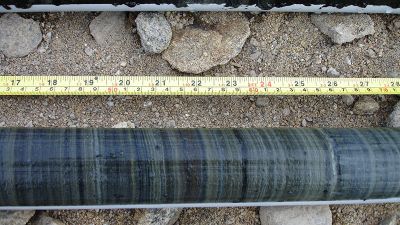
Research at the Princess Elisabeth Research Station: DELAQUA
Starting in January 2010, Dr. Elie Verleyen from the Department of Biology at the University of Ghent will join the scientific teams of BELARE 2009-2010 for a period of 5 weeks at the Princess Elisabeth Station in Antarctica to pursue his DELAQUA project. This research project is deployed in collaboration with other international initiatives such as the British Antarctic Survey's CACHE PEP project (Natural climate variability -extending the Americas palaeoclimate transect through the Antarctic Peninsula to the Pole) and the EBA (Evolution of Biology in the Antarctic) program of the Scientific Committee on Antarctic Research.
Elie Verleyen is no novice to Antarctica. His 2009-2010 trip will be his fourth on record since he has started bringing research attention to the 7th continent (paleoclimate and microbiology). Winner of the prestigious Antarctica InBev-Baillet Latour Fellowship Award in 2008, Elie Verleyen will investigate the deglaciation history of the region and study Antarctic micro-organisms in order to:
- assess their diversity and biogeography and
- address the evolution of Earth's climate over the past 10,000 years.
"Recent climate changes in some parts of Antarctica appear to be unique and isolated phenomena when transposed to the 4 millennia context of climate history. The DELAQUA project attempts to place current climate change in the context of the Earth's natural variability," explains Dr. Verleyen. "To do this, we use biological indicators such as pigments and organic material in lake sediment cores to study past climate changes. By analyzing the microorganisms using microscopy and fossil DNA we are also able to assess the impact of climate and environmental changes on these organisms. Interestingly, a large amount of the microorganisms we find are endemic to Antarctica and occur nowhere else on the planet."
BELARE 2009-2010: Field Research
In order to find these microorganisms, Elie Verleyen will drill sediment cores into the bottom of lakes with the help of researchers from the British Antarctic Survey. Due to the location of his field research, Dr. Verlyen will also depend on logistical assistance from both Russia and Japan, the two countries having scientific stations closest to the Princess Elisabeth Station. Dr. Verleyen will then freeze the cores before sending them back to the laboratory of the University of Ghent for further analysis. In a broader context, these past climate change records will be interlinked with records taken elsewhere, including ice cores from Antarctica, and lake sediment and tree ring records from temperate and tropical regions.
This campaign will also contribute to studying how the regional dynamics of Antarctic glaciers respond to climate changes, how climate variations have influenced microbiological populations in Antarctic lakes over the past and to, perhaps predict, what the effects of further climate changes could be in the future. By finding answers to these questions, it should come out whether current climate change is an isolated phenomenon or whether it is part of a larger picture that fits into a natural rhythmic process. Data collected will also serve to refine existing climate models, while yet another objective of the DELAQUA project is to collect living microorganisms which could potentially have industrial applications.
Antarctica InBev-Baillet Latour Fund Fellowship Award
The InBev-Baillet Latour Fund recognized the multidisciplinary approach and potentially major scientific impact of Elie Verleyen's project from the very beginning. "This project is related to the macro-ecology and biogeography of micro-organisms as well as to the potential use of microalgae for the development of new materials and biological products," says the InBev-Baillet Latour Fund in its press release. The InBev-Baillet Latour Fund award is granted every year to a doctoral or post-doctoral researcher, regardless of nationality, who is enrolled at a Belgian University or a Federal research institute and whose research requires conducting field activities at the Princess Elisabeth Station or in its vicinity.
The InBev-Baillet Latour Fund is a sponsor of the Princess Elisabeth Station in many respects. It provides scientific equipment and support to the Station and finances the InBev-Baillet Latour Antarctica Fellowship Award. The InBev-Baillet Latour Fund has also financed a scientific movie about the Princess Elisabeth Station which is entitled "Building the Future".
Picture: International Polar Foundation - © International Polar Foundation
